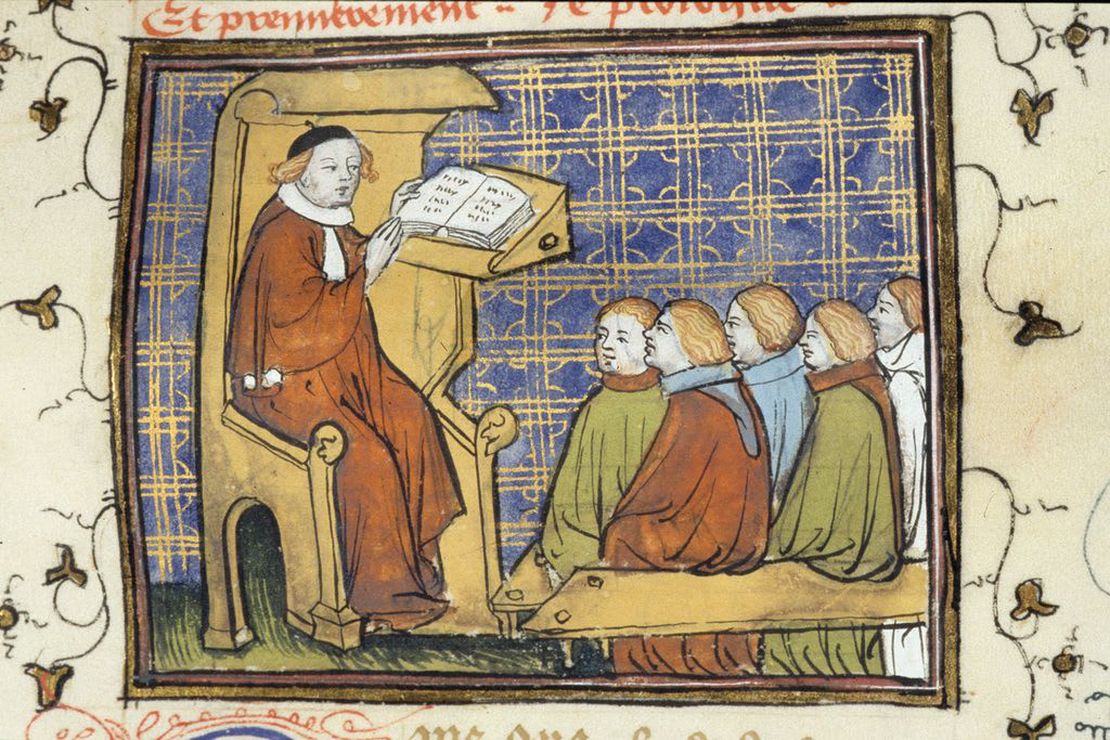
Students work on open learning content
- Sebastian Zug
- Community , News
- April 22, 2022
This is a translated version of a German article that was published on april 22 in 2022 here: https://tu-freiberg.de/presse/studierende-arbeiten-an-offenen-lerninhalten-mit
The Institute for Computer Science has developed an interactive type of lecture format. Together with the lecturers, the students work on the lecture materials with open tools via a website - without any PDF documents or PowerPoint slide collections.
 Prof. Sebastian Zug during his lecture. Photo: TU Bergakademie Freiberg
Prof. Sebastian Zug during his lecture. Photo: TU Bergakademie Freiberg
With one click, students can display the content in different languages, develop an executable program code or start simulations. Despite the diverse content, they also have the opportunity to suggest adjustments and additions. “We continue to develop the open learning content together with the students over the course of the semester. At the end there is a revised version of the lecture materials for each semester, some of which was developed by 15 co-authors,” explains Prof. Sebastian Zug. He is certain: “If it is no longer exclusively the teachers who determine how knowledge is conveyed, this will contribute to transparency. And: Students deal with the subject matter more critically. That also works in non-computer science courses.”
Introduce improvements and additions to the lecture
The basis for this is an easy-to-read description language - LiaScript - which takes up the concepts of Markdown. The latter is also used in text messages such as WhatsApp when content is to be displayed in bold, italics or underlined. “Combined with plugins that embed the interactive content, educators can create attractive materials using just the text editor. Stored in a cloud or another online storage location, the LiaScript website then accesses the text files directly from the browser and creates an interactive online course live from them," explains Dr. André Dietrich, who developed LiaScript. This creates a “code” for the course. This is shared and disseminated and can then be adapted in terms of content by each teacher to their didactic goals using open tools. “In the computer science lectures at the TU Bergakademie Freiberg, we go one step further and involve the students in this process. I am convinced that the quality of the materials used, which were discussed and assessed by a community of teachers and students, increases in favor of the students," says Dr. Dietrich further.
The team is currently working on interfaces for better embedding of LiaScript in various learning management platforms. “While lecturers here in Freiberg conduct online lectures on the OPAL platform, other universities use Moodle or ILIAS, for example,” explains Prof. Zug. “We have therefore been working with LiaScript as open software since 2017 to enable comprehensive use.” A study on user-friendliness was also carried out so that teachers without programming knowledge can quickly familiarize themselves with it. Based on this, an adapted online editor was created, which can be used for the first cooperative practical tests under LiaScript. “This is now used not only by interdisciplinary facilities and institutes at our university, but also by German universities and a growing international community,” says Prof. Zug happily.
Background: Open Educational Resources in the e-learning portfolio
The term Open Educational Resources (OER) was coined by UNESCO 20 years ago and means materials that are made freely available to everyone, both for learning and for modification, without incurring any license or usage costs. In addition to simple texts as a PDF or Word document, this can also be instructional videos or audios, prepared teaching material, photos or graphics.